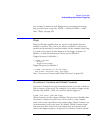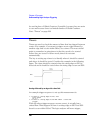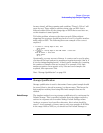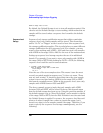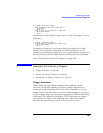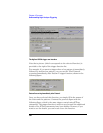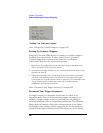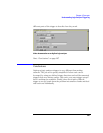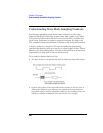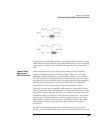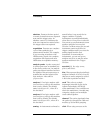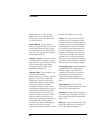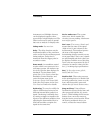
206
Chapter 4: Concepts
Understanding Logic Analyzer Triggering
“Find Edge” and “Find Pattern” together
Next: “Setting Up Complex Triggers” on page 206
Setting Up Complex Triggers
Frequently, the most difficult part of setting up a complex trigger is
breaking down the problem. In other words, how do you map a
complex trigger into sequence levels, branches, and Boolean
expressions? Here are step by step instructions:
1. Break down the problem into events that don't happen simultaneously.
These correspond to the sequence levels.
2. Scan the list of trigger functions to try to find some that match the events
identified in Step #1.
3. Within all remaining events, break them down into Boolean expressions
and their corresponding actions. Each Boolean expression/Action pair
corresponds to a separate branch within a sequence level. Remember that
“Store” branches may exist that are used only to handle storage
qualification for that sequence level.
Next: “Document Your Trigger Sequences” on page 206
Document Your Trigger Sequences
If a trigger sequence is important at one time, it is likely to be
important again. This is why documenting trigger sequences is so
valuable. Complex trigger sequences generally are too difficult to
understand without some accompanying explanation. The following
figure shows an example of the inline documentation on an Agilent
Technologies logic analyzer. Inline means that the documentation is
included in the trigger definition itself. This allows you to document




